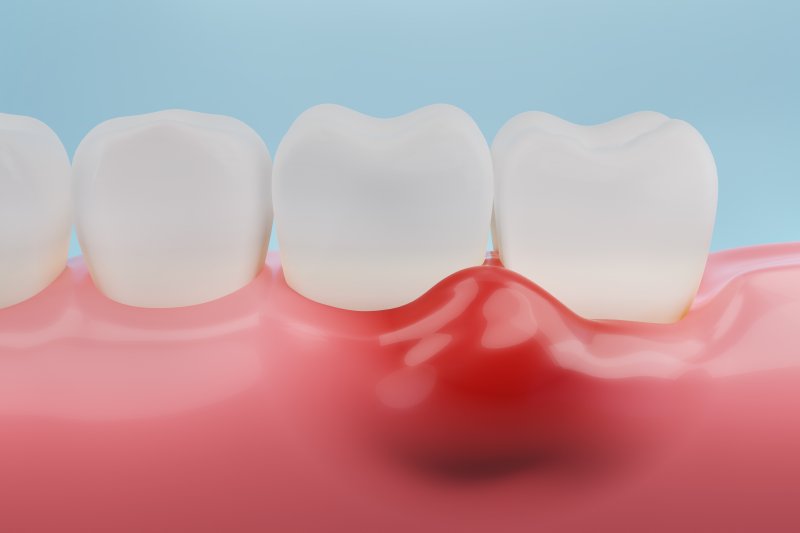
If you deal with gum inflammation, you’re not the only one. Gum disease is a common problem that begins with inflammation of the gums called gingivitis. While it might seem negligible when it starts, if left untreated, it can lead to serious problems like tooth loss, erosion of the jawbone, and dangerous secondary infections like pneumonia or sepsis. Here’s a brief overview of what causes gum disease and how it can be treated.
What Can Cause Gum Disease?
Nearly half of American adults deal with gum disease, and there are several factors that usually contribute to it. A few of these include:
- Neglecting to practice proper oral hygiene: If someone isn’t brushing and flossing properly, plaque and harmful bacteria can accumulate along the gumline, irritating and eventually infecting its soft tissue.
- Tobacco use: Smoking and chewing tobacco is horrible for your teeth and gums. Nicotine causes the user’s blood vessels to constrict, restricting blood flow and making it harder for the gums to recover from injuries and fight infections. To make matters worse, your gums harden to protect themselves when you inhale smoke, and having to do this can exhaust them to the point where they begin to atrophy.
- Certain medical treatments: Some medications or medical treatments like radiation therapy can disrupt saliva production in your mouth. Saliva is a key part of your mouth’s natural cleaning process, and not having enough of it can make it easy for germs to multiply and infect tissues.
What Kinds of Gum Disease Are There?
Gum disease can generally be divided into two categories:
- Gingivitis: The first and relatively mild stage of gum disease is called gingivitis. It affects millions of people in America every year, and you might first notice it if you have sensitive gums or if they bleed when you brush or floss. While gum disease isn’t a dire form of gum disease, it’s crucial to treat the problem so it doesn’t get any worse.
- Periodontitis: If gingivitis is allowed to progress, the gum disease will advance to the stage of periodontitis. At this stage, the infection has started to erode the soft tissues and bone structures in the mouth. The gums will be in pain and teeth will probably start to come loose. Periodontitis requires immediate dental attention to preserve your oral and overall health.
Don’t let inflammation of the gums become anything worse. Treatments from your dentist can help keep your teeth and gums in a beautiful and comfortable state for a lifetime.
About the Author
Dr. Cher Rich earned her dental degree at the University of Texas at Houston Dental School and opened her dental office in 2007. She has a passion for helping her patients achieve and maintain beautiful smiles. Her office in Houston, TX offers general, restorative, cosmetic, and emergency dentistry. If you are worried about gum inflammation, contact her office online or dial (281) 469-6281.
